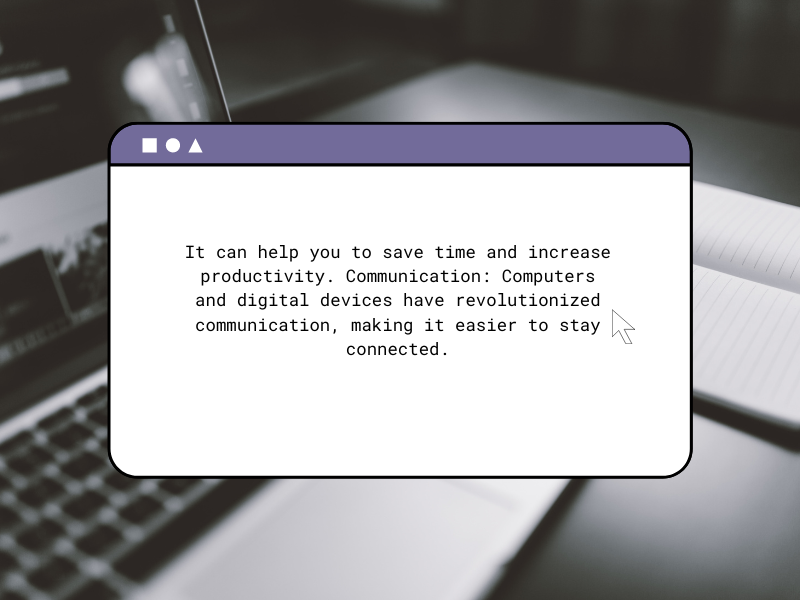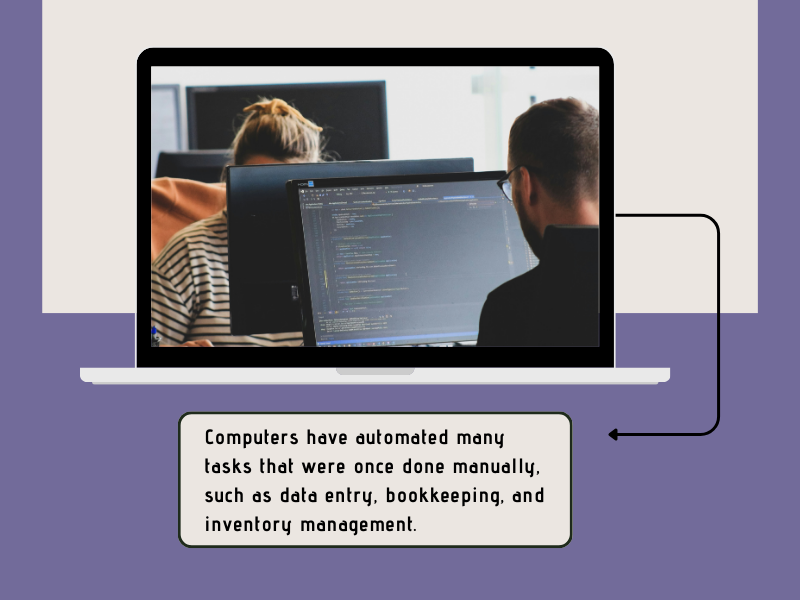
Different Types of Computers: All You Need to Know
In today's world, technology is everywhere, and computers play a significant role in our daily lives. There are many different types of computers, each designed for specific tasks and needs. From powerful desktops used for gaming and work to portable laptops and tablets that we can take anywhere, understanding these types can help you choose the right one for you. In this article, we will explore the different types of computers and their unique features to help you better understand how they can be used in everyday life.

What is a computer?
A computer is a machine that processes information and helps us complete various tasks. It can take in data, work with it, and then give us results. Computers come in many shapes and sizes, which are known as the different types of computers. For example, there are desktop computers that stay in one place and are often used for work or gaming, laptops that are portable and can be used anywhere, and tablets that are even smaller and use touchscreens. Each of these different types of computers has its unique features and is designed for specific uses, making computers an essential part of our daily lives.
Different types of computers
Computers come in various forms, each designed for specific tasks and purposes. Understanding the different types of computers can help you choose the right one for your needs.
Desktop Computers
Desktop computers are one of the most common type of computers found in homes and offices. They consist of separate components, including a monitor, keyboard, mouse, and a central processing unit (CPU), motherboard and most of the other internal components. Desktops typically have larger screens, making them ideal for multitasking and working on complex projects.
They usually possess powerful hardware, which allows for high performance in tasks such as gaming, graphic design, and office applications.
Because they are not portable, desktops are often used where they can be plugged in, making them suitable for demanding applications like data analysis and multimedia editing. One of the advantages of desktop computers is their ability to be easily upgraded; users can replace or add components like graphics cards and memory to enhance performance.
Laptops
Laptops are another popular category among the different types of computers. They are portable devices that combine all the necessary components into one compact unit, including a built-in screen, keyboard, and battery. This design makes laptops easy to carry and convenient for users who need to work on the go. Many laptops also come equipped with wireless connectivity, allowing users to access the internet from virtually anywhere.
Laptops are particularly well-suited for students and professionals, as they can be used for a variety of tasks, including writing, browsing the web, and participating in video conferences. While they may not always match the raw power of desktops, modern laptops are increasingly powerful and capable of handling demanding software, solidifying their place among the different types of computers.
Tablets
Among the different types of computers, tablets stand out for their lightweight and portable design. Tablets feature a touchscreen interface, making them user-friendly and easy to navigate. They are smaller than laptops and often have a longer battery life, which makes them perfect for users who want to consume content on the go.
Tablets are great for reading e-books, watching videos, and casual web browsing.
Although they may not be as powerful as laptops or desktops, tablets have gained popularity for their versatility and convenience, especially among casual users and students looking for a device for entertainment or light productivity. Their inclusion in the list of different types of computers highlights the evolution of computing technology.
Mobile Computers
Mobile computers are an essential category among the different types of computers. This term typically includes devices like laptops, tablets, and smartphones that are designed for portability. Mobile computers are lightweight and easy to carry, allowing users to work, communicate, and access information from virtually anywhere.
They come equipped with wireless connectivity options, enabling internet access on the go. Mobile computers are perfect for professionals who travel frequently, students who attend classes in different locations, and anyone who values convenience. Their versatility and portability make them a key component of modern computing among the different types of computers available today.
Workstations
For users requiring more computing power, workstations are a crucial type among the different types of computers. Workstations are high-performance machines designed for professional tasks that demand significant processing capabilities. They typically feature high RAM and storage capacity, along with advanced graphics cards to support demanding applications like video editing, 3D rendering, and software development.
These computers are commonly used in industries such as engineering, graphic design, and animation, where specialized software requires robust performance. While workstations are generally more expensive than standard desktops, they provide the power needed for complex projects, emphasizing the diversity within the different types of computers.
Servers
Another crucial category within the different types of computers is servers. Servers are powerful machines designed to manage and provide resources to other computers over a network. They are capable of handling multiple user requests simultaneously and typically offer high storage capacity and data redundancy for security.
Servers play an essential role in businesses, as they host websites, store data, and run applications that many users access at once. Their reliability and performance make them a backbone for modern IT infrastructure, allowing organizations to operate efficiently and securely, showcasing the vital role of servers among the different types of computers.
Supercomputers
At the high end of the computing spectrum, supercomputers are the most powerful type among the different types of computers. These machines are designed to perform millions of calculations per second, making them invaluable for scientific research, complex simulations, and data-intensive tasks. Supercomputers utilize thousands of processors working together, which allows them to process vast amounts of data rapidly.
They are commonly used in fields like climate modelling, nuclear physics, and bioinformatics, where their immense computing power can solve complex problems that would be impossible for regular computers. Although supercomputers are expensive and require particular environments for operation, their contributions to research and development are unparalleled, further exemplifying the diversity of the different types of computers.
All-in-One Computers
All-in-one computers represent another type within the different types of computers. These machines integrate the monitor and CPU and the other computer componentes into a single unit, which minimizes clutter and saves space. All-in-one computers often come with sleek designs and may feature touchscreens, making them visually appealing and easy to use.
They are powerful enough to handle everyday tasks such as web browsing, document editing, and casual gaming, making them suitable for both home and office environments. The space-saving design and simplicity of setup make all-in-one computers a popular choice for those looking to streamline their workspace without sacrificing performance.

How do you choose the right computer?
Choosing the right computer involves understanding your needs and the different types of computers available. Start by considering what tasks you will perform. If you need a device for basic tasks like browsing the internet and word processing, a laptop or desktop may be sufficient. For portability, a laptop or tablet would be ideal. If you're into gaming, graphic design, or video editing, a desktop or workstation with high performance is essential.
Additionally, think about your budget, as different types of computers come at various price points. Lastly, consider the operating system you prefer and whether you need additional features like touchscreens or portability. By evaluating these factors, you can make an informed decision about which type of computer best fits your lifestyle and requirements.

In Summary
Knowing the different types of computers helps you choose the right one for your needs. From desktops and laptops to tablets and all-in-one computers, each type has its features and uses. Mobile computers offer convenience for users on the go, while workstations and servers are great for demanding tasks. As technology grows, the variety of computers will continue to expand, giving us more options to improve our work and lives.
Senaste blogginläggen

Your Essential Guide on How to Write a Proposal Letter

Computer Costs Breakdown: What to Know Before Making a Purchase
